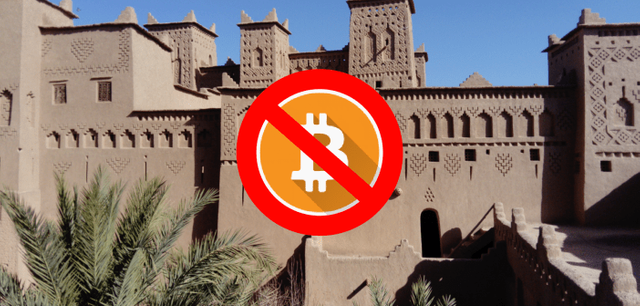
The Moroccan central bank, Bank Al-Maghrib, and the Office des Changes issued a public statement on November 20, 2017. The two financial regulators inform the Moroccan public that transactions using digital currencies such as bitcoin constitute a violation of the regulations. foreign exchange. Bitcoin thus becomes virtually illegal.
Moroccan regulator follows "the evolution of digital currencies with interest"
The regulator has therefore made the choice to prohibit all circulation in Bitcoin. A priori, it is not forbidden to own one. Regulators highlighted the risks associated with the use of cryptocurrencies to carry out transactions as the main motivation for the ban. The press release explains:
"As this is a hidden payment system that is not supported by a financial institution, the use of virtual currencies entails significant risks for their users"
Paradoxically, it is stated below that the central bank, the bureau de change and a range of local banks "follow the evolution of digital currencies with interest". Except ... How could the regulator follow the new behaviors that flow from this new payment system ... if it forbids it?
Bellaj Badr's commentary
Bitcoin Africa spoke with Bellaj Badr, a Moroccan expert on blokchain and CTO from Mchain, about the ban.
"I am very disappointed by such a reaction. Making the bitcoin illegally is a bad decision because it is very popular with the population and could help us solve many local problems. We will do our best to change this decision. They made a badly calculated decision that damages the image of our country in Africa and in the world. "
It remains to be seen how bitcoin users in Morocco will react. As evidenced by the evolution of volumes exchanged on the exchange site between LocalBitcoins, demand for bitcoin in Morocco has steadily increased over the last 18 months and, given the pseudo-anonymous nature and the resistance to censorship of bitcoin, it will be difficult for Moroccan regulators to effectively impose this ban impacting cryptocurrencies.
Moreover, by making digital currency transactions illegal, it will be difficult for Morocco to benefit from solutions based on blockchains and cryptocurrencies, since local startups are no longer allowed to work on any of them.
"The blockchain and cryptocurrency are the future and we urge these respected institutions to review their decision and open a national debate on this topic. As a blockchain expert, I will do my best to prove to the authorities the benefits of these technologies. "